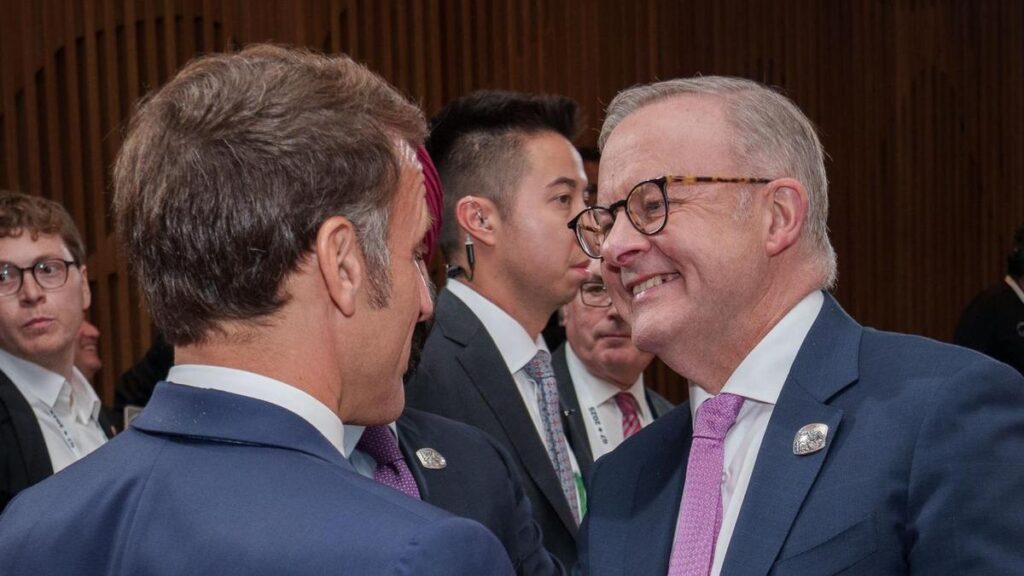
Anthony Albanese, the Prime Minister of Australia, reaffirmed his nation’s commitment to a two-state solution during a recent phone conversation with the President of France, Emmanuel Macron. This dialogue comes as France prepares to lead an initiative at the United Nations to officially recognize a Palestinian state next month.
The discussion emphasized the need for renewed efforts to advance peace negotiations between Israel and Palestine. Albanese highlighted Australia’s long-standing support for a two-state solution, which envisions an independent Palestinian state existing alongside Israel. He expressed hope that this approach would facilitate a lasting resolution to the ongoing conflict in the region.
Both leaders acknowledged the challenges that have hindered progress in negotiations. The situation has remained tense, with ongoing violence and political instability affecting both Israelis and Palestinians. Albanese noted that it is crucial for international partners to collaborate in fostering dialogue and supporting constructive actions toward peace.
Macron’s upcoming initiative at the United Nations aims to garner global support for recognizing Palestine as a sovereign state. This move reflects France’s commitment to a diplomatic resolution and a belief in the rights of Palestinians to self-determination. During the call, Albanese expressed his endorsement of this initiative, emphasizing its potential to revitalize peace talks.
International reactions to the proposed recognition have been mixed. Some countries support the initiative, viewing it as a necessary step toward fairness and justice, while others express concerns about its impact on Israel-Palestine relations. Albanese’s support may signal a shift in Australia’s foreign policy, particularly regarding its approach to the Middle East.
The call between Albanese and Macron is part of a broader trend among world leaders seeking to address the Israeli-Palestinian conflict. The Australian Prime Minister reiterated the importance of dialogue, stating that “sustained engagement” is crucial for any path forward. He encouraged other nations to join in supporting initiatives aimed at peace.
As the international community prepares for the upcoming United Nations discussions, the spotlight will remain on how governments respond to the call for Palestinian statehood. Albanese’s support reinforces Australia’s role in advocating for diplomatic solutions and promoting stability in the region.
In conclusion, the reaffirmation of support for a two-state solution by Prime Minister Albanese during his conversation with President Macron highlights the ongoing commitment to peace in the Middle East. With the United Nations set to address this critical issue next month, the eyes of the world will be on the potential developments that could reshape the future of Israeli-Palestinian relations.







